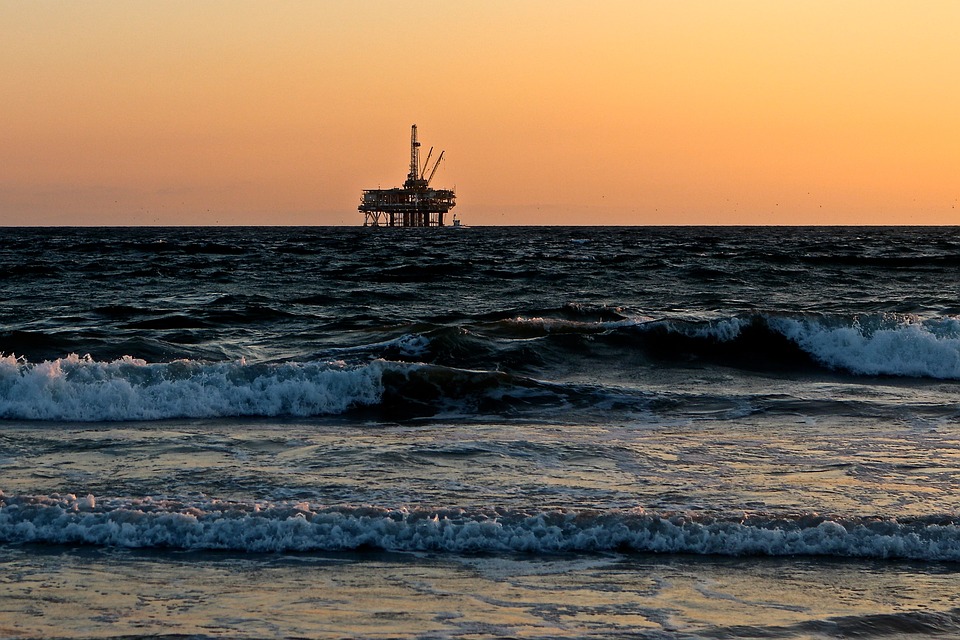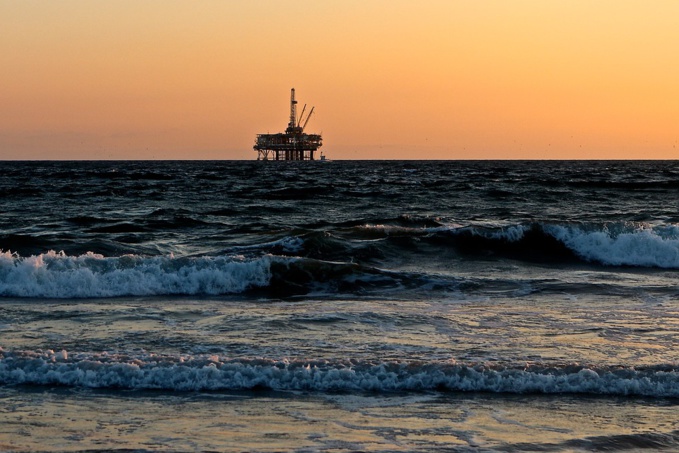Commercial prospects attract all parties, but a full-fledged military conflict can begin if Greece, Cyprus and Turkey cannot settle amicably in the near future.
Lately, critics have been optimistic about prospects for development of offshore deposits in Cyprus, not only because of the growing interest and arrangemets of Nicosia and some of its international partners, but also because of possible successful reunification of Cyprus.
Nevertheless, the latest attempt to develop the field once again was in vain, since the two leading parties, Greek Cyprus and Turkish Cyprus, could not find a solution to end the dispute.
The sides are still accusing each other of not wanting to come to a final decision. This ongoing military confrontation may threaten the offshore fuel projects of Italian ENI and French oil company Total.
The oil companies said that they were going to start drilling at Block 11 this weekend. Ankara reacted very firmly: the country condemned these operations, threatening to take all possible steps. Turkey has already allocated a frigate TCG Gokceada to the location for the sole purpose of controlling the West Capella drill vessel used for drilling operations at Block 11.
Due to drilling operations, Cyprus closed 5 miles around Block 11 and two neighboring blocks for shipping. Ankara considers this a straightforward confrontation, since it has always asserted that all the gas resources of the island are owned by both sides (Greeks and Turkish Cyprus).
Until now, development of Cyprus gas fields has been directly related to ongoing Israeli projects in the field of offshore gas production.
In June, Israel, Greece and Cyprus discussed ambitious plans to build an underwater gas pipeline. The pipeline, officials say, will carry natural gas from Israeli and Cypriot reserves in the Eastern Mediterranean to Europe.
The pipeline will extent to more than 2 thousand km, and will cost more than $ 6 billion. It will become one of the longest in the world. Israel, as the Israeli Prime Minister Benjamin Netanyahu said, still supports these goals. This integration of Israel, Greece/EU, Cyprus and even Egypt has now been exposed to a risk
Hidden threats from Turkey regarding the shelf development met with a firm reaction from Athens. Greece stated that Turkey's "countermeasures to the development of the Cyprus Block 11" will receive a response from Greece, since it is "prepared to defend its sovereign rights".
This is yet another sign of the tensions between the two allies. Cyprus needs the Greek support yet Nicosia is also backed by Washington and the EC.
Brussels openly stated that Ankara should stop threatening the member states of the EU.
In response, Yiorgos Lakkotrypis, EnergyMinister of Cyprus, said earlier that his country would continue the project to develop offshore gas, retaining it and "completely separating" from the talks on the island’s reunification.
Greek Prime Minister Alexis Tsipras also reacted to Ankara's threats He said that the recent events do not make Greece "particularly happy."
The escalation between the sides may turn real. In recent months, sources from the EU and NATO told that Turkey has regularly violated the airspace of Greece. Naval vessels are also crossing the national waters.
source: oilprice.com
Lately, critics have been optimistic about prospects for development of offshore deposits in Cyprus, not only because of the growing interest and arrangemets of Nicosia and some of its international partners, but also because of possible successful reunification of Cyprus.
Nevertheless, the latest attempt to develop the field once again was in vain, since the two leading parties, Greek Cyprus and Turkish Cyprus, could not find a solution to end the dispute.
The sides are still accusing each other of not wanting to come to a final decision. This ongoing military confrontation may threaten the offshore fuel projects of Italian ENI and French oil company Total.
The oil companies said that they were going to start drilling at Block 11 this weekend. Ankara reacted very firmly: the country condemned these operations, threatening to take all possible steps. Turkey has already allocated a frigate TCG Gokceada to the location for the sole purpose of controlling the West Capella drill vessel used for drilling operations at Block 11.
Due to drilling operations, Cyprus closed 5 miles around Block 11 and two neighboring blocks for shipping. Ankara considers this a straightforward confrontation, since it has always asserted that all the gas resources of the island are owned by both sides (Greeks and Turkish Cyprus).
Until now, development of Cyprus gas fields has been directly related to ongoing Israeli projects in the field of offshore gas production.
In June, Israel, Greece and Cyprus discussed ambitious plans to build an underwater gas pipeline. The pipeline, officials say, will carry natural gas from Israeli and Cypriot reserves in the Eastern Mediterranean to Europe.
The pipeline will extent to more than 2 thousand km, and will cost more than $ 6 billion. It will become one of the longest in the world. Israel, as the Israeli Prime Minister Benjamin Netanyahu said, still supports these goals. This integration of Israel, Greece/EU, Cyprus and even Egypt has now been exposed to a risk
Hidden threats from Turkey regarding the shelf development met with a firm reaction from Athens. Greece stated that Turkey's "countermeasures to the development of the Cyprus Block 11" will receive a response from Greece, since it is "prepared to defend its sovereign rights".
This is yet another sign of the tensions between the two allies. Cyprus needs the Greek support yet Nicosia is also backed by Washington and the EC.
Brussels openly stated that Ankara should stop threatening the member states of the EU.
In response, Yiorgos Lakkotrypis, EnergyMinister of Cyprus, said earlier that his country would continue the project to develop offshore gas, retaining it and "completely separating" from the talks on the island’s reunification.
Greek Prime Minister Alexis Tsipras also reacted to Ankara's threats He said that the recent events do not make Greece "particularly happy."
The escalation between the sides may turn real. In recent months, sources from the EU and NATO told that Turkey has regularly violated the airspace of Greece. Naval vessels are also crossing the national waters.
source: oilprice.com



















